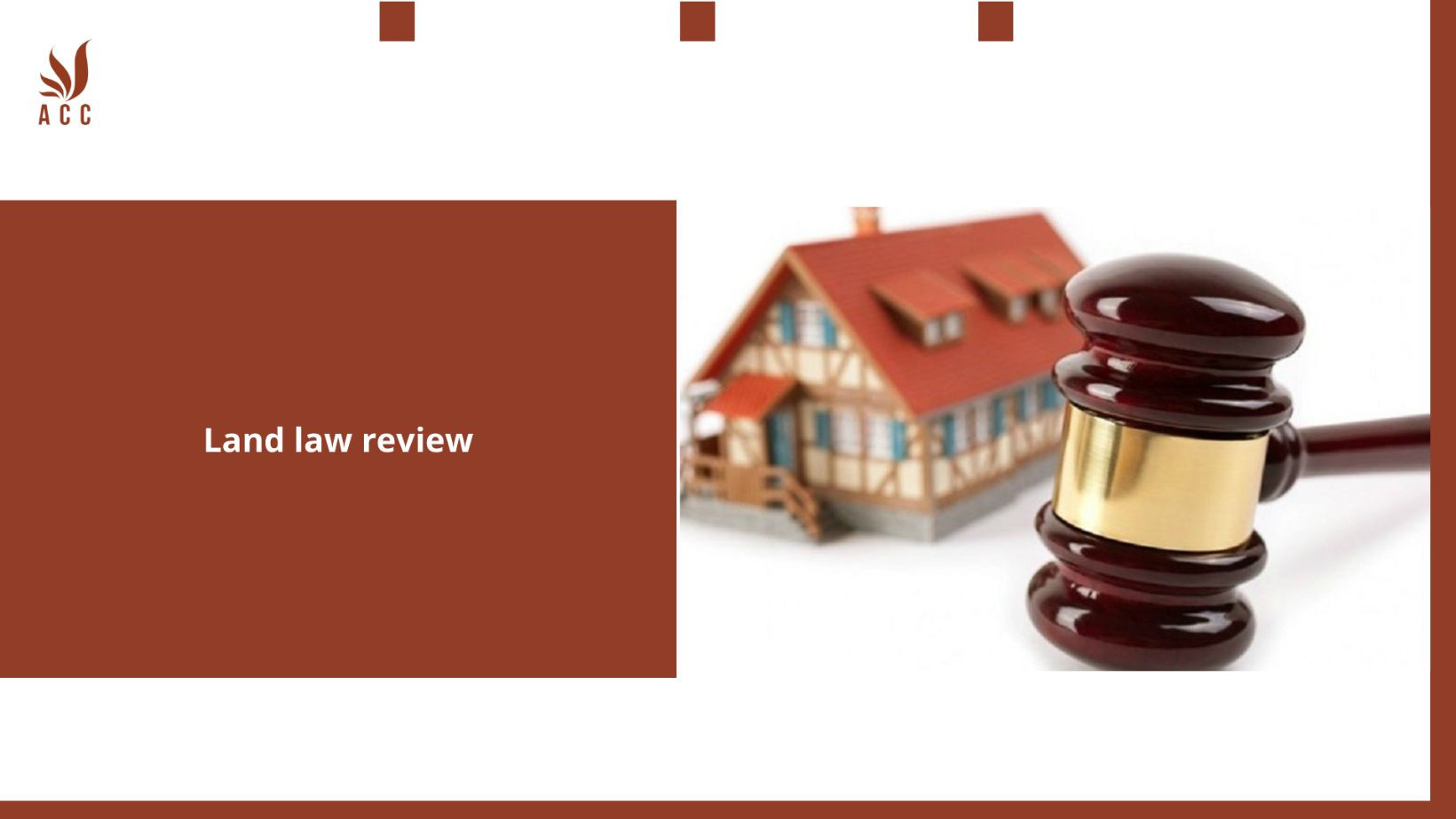A "Land Law Review" typically refers to the assessment and examination of land-related legal frameworks and regulations within a particular jurisdiction or region. This review can be conducted by legal experts, government agencies, or legal scholars to analyze the effectiveness, fairness, and relevance of existing land laws. Here are some key aspects of a Land Law Review:

1. Purpose of the Review:
- The primary purpose of a Land Law Review is to evaluate the existing legal framework governing land ownership, land use, land rights, and land management. The review aims to identify areas that may require reform, improvement, or alignment with changing societal needs.
2. Legal Framework Analysis:
- Experts and legal professionals analyze the relevant land laws and regulations. This includes assessing the constitution, land acts, land codes, and specific land-related legislation in the jurisdiction.
3. Stakeholder Engagement:
- Stakeholders, including landowners, land users, local communities, indigenous groups, and legal experts, are often consulted during the review process. Their input and concerns help shape the review's findings.
4. Legal Gaps and Ambiguities:
- The review assesses whether there are legal gaps, ambiguities, or inconsistencies within the existing land laws. These issues can lead to disputes, legal challenges, and uncertainty in land ownership and land use.
5. Land Rights and Ownership:
- The review examines the legal framework for land rights and ownership, considering issues related to private property, communal land, customary land tenure, and public land.
6. Land Use and Zoning:
- Land use and zoning regulations are analyzed to ensure that they align with regional development goals, environmental protection, and the needs of local communities.
7. Environmental Considerations:
- The review assesses whether land laws adequately address environmental concerns, including protection of natural resources, conservation of ecosystems, and mitigation of environmental impact.
8. Indigenous and Customary Rights:
- If applicable, the review considers the recognition and protection of indigenous and customary land rights. This may involve addressing historical injustices and land disputes.
9. When using ACC Law Firm's land-related services, entrepreneurs will receive
When using ACC Law Firm's land-related services, entrepreneurs will receive expert advice and assistance in navigating various legal aspects of land ownership and transactions. This includes guidance in property acquisitions, leases, zoning regulations, land use planning, and any other land-related legal matters. ACC Law Firm's team of experienced attorneys will provide personalized support to entrepreneurs, ensuring compliance with applicable laws and regulations, protecting property rights, and optimizing the value of their land investments.
10. Q&A
Question: What is the primary objective of conducting a land law review?
Answer: The primary objective of a land law review is to assess the effectiveness and relevance of existing land laws and regulations. This process helps identify areas for improvement, adaptation to changing circumstances, and alignment with evolving societal needs.
Question: What are the typical components of a comprehensive land law review?
Answer: A comprehensive land law review often includes an examination of property rights, land use regulations, land tenure systems, environmental considerations, and the impact of land laws on economic development and social equity. It may also consider case studies and legal precedents.
Question: How can a land law review influence legal reform or changes in land policy?
Answer: A land law review can provide valuable insights and data that inform policymakers and legislators. It may lead to the drafting of new land legislation or the amendment of existing laws to address identified shortcomings or to better align with current needs.
Question: What role can stakeholders, including the public, play in a land law review process?
Answer: Public engagement is crucial in a land law review. Stakeholders, including citizens, landowners, legal experts, and advocacy groups, can participate by providing input, attending public hearings, and sharing their perspectives and experiences. Their involvement can help ensure that the review process is inclusive and reflects a wide range of viewpoints.
Nội dung bài viết:






Bình luận